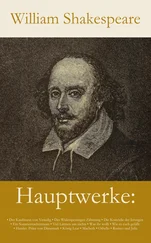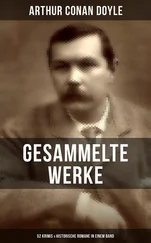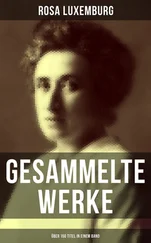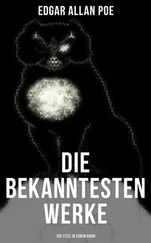NURSE.
Lord, how my head aches! what a head have I!
It beats as it would fall in twenty pieces.
My back o’ t’ other side,—O, my back, my back!—
Beshrew your heart for sending me about
To catch my death with jauncing up and down!
JULIET.
I’ faith, I am sorry that thou art not well.
Sweet, sweet, sweet nurse, tell me, what says my love?
NURSE.
Your love says, like an honest gentleman,
And a courteous, and a kind, and a handsome;
And, I warrant, a virtuous,—Where is your mother?
JULIET.
Where is my mother?—why, she is within;
Where should she be? How oddly thou repliest!
‘Your love says, like an honest gentleman,—
‘Where is your mother?’
NURSE.
O God’s lady dear!
Are you so hot? marry,come up, I trow;
Is this the poultice for my aching bones?
Henceforward,do your messages yourself.
JULIET.
Here’s such a coil!—come, what says Romeo?
NURSE.
Have you got leave to go to shrift to-day?
JULIET.
I have.
NURSE.
Then hie you hence to Friar Lawrence’ cell;
There stays a husband to make you a wife:
Now comes the wanton blood up in your cheeks,
They’ll be in scarlet straight at any news.
Hie you to church; I must another way,
To fetch a ladder, by the which your love
Must climb a bird’s nest soon when it is dark:
I am the drudge, and toil in your delight;
But you shall bear the burden soon at night.
Go; I’ll to dinner; hie you to the cell.
JULIET.
Hie to high fortune!—honest nurse, farewell.
[Exeunt.]
German
Table of Contents
Friar Lawrence’s Cell.
[Enter Friar Lawrence and Romeo.]
FRIAR.
So smile the heavens upon this holy act
That after-hours with sorrow chide us not!
ROMEO.
Amen, amen! but come what sorrow can,
It cannot countervail the exchange of joy
That one short minute gives me in her sight:
Do thou but close our hands with holy words,
Then love-devouring death do what he dare,—
It is enough I may but call her mine.
FRIAR.
These violent delights have violent ends,
And in their triumph die; like fire and powder,
Which, as they kiss, consume: the sweetest honey
Is loathsome in his own deliciousness,
And in the taste confounds the appetite:
Therefore love moderately: long love doth so;
Too swift arrives as tardy as too slow.
Here comes the lady:—O, so light a foot
Will ne’er wear out the everlasting flint:
A lover may bestride the gossamer
That idles in the wanton summer air
And yet not fall; so light is vanity.
[Enter Juliet.]
JULIET.
Good-even to my ghostly confessor.
FRIAR.
Romeo shall thank thee, daughter, for us both.
JULIET.
As much to him, else is his thanks too much.
ROMEO.
Ah, Juliet, if the measure of thy joy
Be heap’d like mine, and that thy skill be more
To blazon it, then sweeten with thy breath
This neighbour air, and let rich music’s tongue
Unfold the imagin’d happiness that both
Receive in either by this dear encounter.
JULIET.
Conceit, more rich in matter than in words,
Brags of his substance, not of ornament:
They are but beggars that can count their worth;
But my true love is grown to such excess,
I cannot sum up sum of half my wealth.
FRIAR.
Come, come with me, and we will make short work;
For, by your leaves, you shall not stay alone
Till holy church incorporate two in one.
[Exeunt.]
German
Table of Contents
Table of Contents
A public Place.
[Enter Mercutio, Benvolio, Page, and Servants.]
BENVOLIO.
I pray thee, good Mercutio, let’s retire:
The day is hot, the Capulets abroad,
And, if we meet, we shall not scape a brawl;
For now, these hot days, is the mad blood stirring.
Mercutio. Thou art like one of these fellows that, when he enters the confines of a tavern, claps me his sword upon the table, and says ‘God send me no need of thee!’ and by the operation of the second cup draws him on the drawer, when indeed there is no need.
BENVOLIO.
Am I like such a fellow?
MERCUTIO.
Come, come, thou art as hot a Jack in thy mood as any in
Italy; and as soon moved to be moody, and as soon moody to be
moved.
BENVOLIO.
And what to?
MERCUTIO.
Nay, an there were two such, we should have none shortly, for one would kill the other. Thou! why, thou wilt quarrel with a man that hath a hair more or a hair less in his beard than thou hast. Thou wilt quarrel with a man for cracking nuts, having no other reason but because thou hast hazel eyes;—what eye but such an eye would spy out such a quarrel? Thy head is as full of quarrels as an egg is full of meat; and yet thy head hath been beaten as addle as an egg for quarrelling. Thou hast quarrelled with a man for coughing in the street, because he hath wakened thy dog that hath lain asleep in the sun. Didst thou not fall out with a tailor for wearing his new doublet before Easter? with another for tying his new shoes with an old riband? and yet thou wilt tutor me from quarrelling!
BENVOLIO.
An I were so apt to quarrel as thou art, any man should buy the fee simple of my life for an hour and a quarter.
MERCUTIO.
The fee simple! O simple!
BENVOLIO.
By my head, here come the Capulets.
MERCUTIO.
By my heel, I care not.
[Enter Tybalt and others.]
TYBALT.
Follow me close, for I will speak to them.—Gentlemen, good-den: a word with one of you.
MERCUTIO.
And but one word with one of us? Couple it with something; make it a word and a blow.
TYBALT.
You shall find me apt enough to that, sir, an you will give me occasion.
MERCUTIO.
Could you not take some occasion without giving?
TYBALT.
Mercutio, thou consortest with Romeo,—
MERCUTIO.
Consort! what, dost thou make us minstrels? An thou make minstrels of us, look to hear nothing but discords: here’s my fiddlestick; here’s that shall make you dance. Zounds, consort!
BENVOLIO.
We talk here in the public haunt of men:
Either withdraw unto some private place,
And reason coldly of your grievances,
Or else depart; here all eyes gaze on us.
MERCUTIO.
Men’s eyes were made to look, and let them gaze;
I will not budge for no man’s pleasure, I.
TYBALT.
Well, peace be with you, sir.—Here comes my man.
[Enter Romeo.]
MERCUTIO.
But I’ll be hanged, sir, if he wear your livery:
Marry, go before to field, he’ll be your follower;
Your worship in that sense may call him man.
TYBALT.
Romeo, the love I bear thee can afford
No better term than this,—Thou art a villain.
ROMEO.
Tybalt, the reason that I have to love thee
Doth much excuse the appertaining rage
To such a greeting. Villain am I none;
Therefore farewell; I see thou know’st me not.
TYBALT.
Boy, this shall not excuse the injuries
That thou hast done me; therefore turn and draw.
ROMEO.
I do protest I never injur’d thee;
But love thee better than thou canst devise
Till thou shalt know the reason of my love:
And so good Capulet,—which name I tender
As dearly as mine own,—be satisfied.
MERCUTIO.
O calm, dishonourable, vile submission!
Alla stoccata carries it away. [Draws.]
Читать дальше












